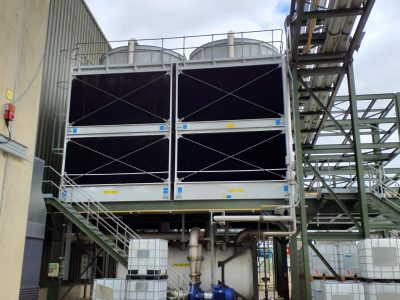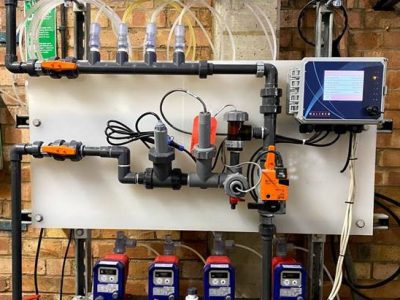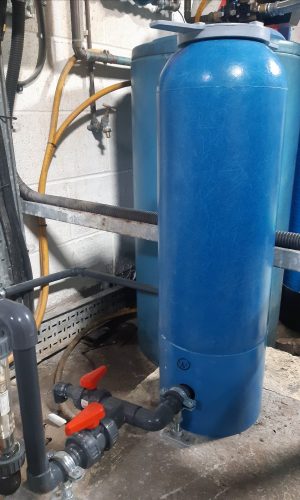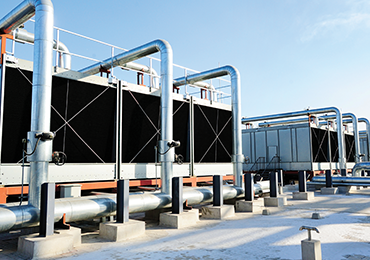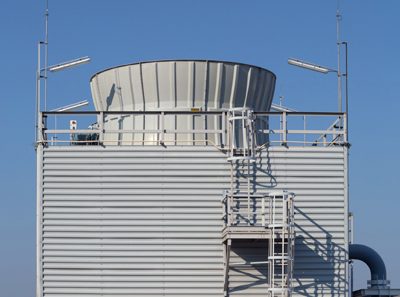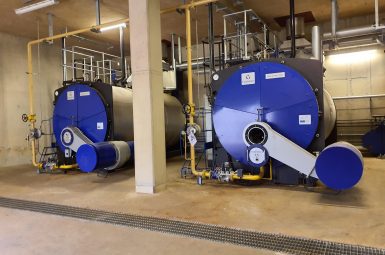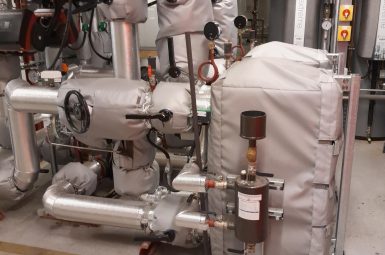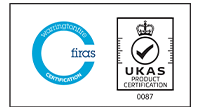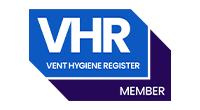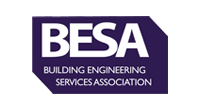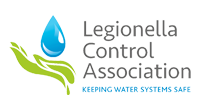Cooling Tower Water Treatment Services
Whether you have a cooling system that uses air, cooling towers or a hybrid, it is essential to know how effective/efficient your system is operating and whether it needs Cooling Tower Water Treatment Services.
How Do Hydro-X Support Your Cooling Tower With Water Treatment?
Hydro-X will support with advanced monitoring and control solutions to complement our unique chemical treatments and filtration to minimise, bacteria, scaling or corrosion. We provide cleaning and disinfection of cooling systems through locally based and trained water treatment experts who deliver same-day service reports, and dedicated hygiene cleaning teams to maintain a clean and healthy system.
Well maintained and serviced systems produce the most efficient, and therefore cost-effective, utility that meets the demand of a changing environment as remain in compliance with relevant legionella legislation.
> Talk to us today about your Cooling Tower Water Treatment requirements
> View our other Water Treatment services
Why Choose Cooling Tower Water Treatment Services?
If left alone, cooling systems can unfortunately turn deadly with microbial growth. This may sound like scaremongering but unfortunately it’s the truth.
Deadly bacteria loves to grow in cooling systems if it gets the chance and if effective treatment (i.e. corrosion control) is not used to combat this, it can happen faster than you think.
This is why it is so vital to prevent scale formation with ACOP L8 cleaning and disinfection, and scale control in cooling water systems. Breeding grounds for bacteria (including Legionella) are created if scale is allowed to grow, and this can cause the water to inflict potentially fatal illnesses.
Additionally, scale can build up in water systems long-term, affecting their cooling performance and increasing energy costs. The life expectancy of these cooling systems can also be damaged,causing significant safety and regulatory compliance issues.
Water treatment services for cooling systems combat these issues, ensuring the longevity and compliance of your systems.
What Does Cooling Tower Water Treatment Involve?
Here at Hydro-X, our cooling tower water treatment services involve several core steps:
Water Analysis
We begin with a detailed site survey and water analysis, testing for key parameters such as pH, conductivity, hardness, total dissolved solids (TDS), corrosion by-products (e.g. iron, copper), and microbiological activity (including Legionella). This helps us understand the current water quality and identify any risks or imbalances.
System Assessment
Our engineers assess the condition and layout of your cooling tower system, including dosing equipment, filtration, blowdown controls, and water usage patterns. We also review historical records and compliance status in line with HSG274 Part 1 and ACOP L8.
Treatment
Based on our findings, we will then implement treatment for your cooling tower. This could include scale inhibitors to address limescale buildup, biocides to control microbial growth, and corrosion inhibitors
Ongoing Maintenance
We provide routine water testing and service visits, with clear reports and recommendations. This includes dip slides, logbook updates, and compliance documentation to support your cooling tower.
A Cost Effective Solution
Hydro X are happy to cater to your cooling tower water treatment service needs with legionella risk assessments from the approved code of practice and with the use of chemicals where needed. We can implement an add-on to your system which activates or increases Reverse Osmosis and helps to dispose of suspended solids.
Heat transfer efficiencies and concentration factors are improved, giving the chance for the cooling tower to run more smoothly overall. As discussed above we aim to encourage a successful Ion Exchange and reduce water operational costs (that includes with cooling towers).
Expert Water Treatment For Cooling Systems
Cooling tower water treatment from Hydro-X takes your full system into account, providing fully compliant and quick reports, assessments, and treatment for your cooling systems. Our highly skilled local teams proactively respond to the unique risks you face, addressing issues swiftly.
Contact a member of our team today to discuss your water treatment requirements.
Cooling Tower Water Treatment FAQs
What Are The Main Issues Caused By Untreated Cooling Tower Water?
Untreated cooling tower water can lead to several serious issues, including:
- Scale formation, which reduces heat transfer efficiency and increases energy consumption.
- Corrosion of metal components, leading to system damage, leaks, and premature equipment failure.
- Biological fouling, such as algae, bacteria, and biofilm growth, which can obstruct water flow and pose health risks, including Legionnaires’ disease.
- Fouling caused by suspended solids and debris, which clogs pipes and reduces system efficiency.
These problems can result in higher operating costs, unscheduled downtime, and regulatory non-compliance. Cooling water treatment solutions address these issues and prevent expensive issues from developing over time.
How Often Should Cooling Tower Water Be Treated?
Cooling tower water should be treated continuously using automatic chemical dosing and control systems to maintain optimal water quality. Routine testing should be carried out weekly, or more frequently for critical systems or during periods of high demand.
Biological activity, such as bacteria and algae, should be monitored daily or twice weekly depending on risk assessment. Manual inspections and checks should be performed monthly, alongside more detailed laboratory analyses.
Consistent treatment and monitoring help to maintain efficiency, prevent damage, and ensure compliance with health and safety standards, such as those set by the HSE in the UK (e.g., HSG274 Part 1).
What Water Treatment Compliance Standards Do Closed Systems Need To Meet?
There are several standards that water must meet in the UK:
- HSG274 Part 1 (HSE): Guidance for controlling Legionella in evaporative cooling systems.
- ACOP L8: Legal code supporting COSHH, requiring risk assessments and control schemes.
- COSHH Regulations: Requires control of hazardous substances like Legionella bacteria.
- LCA Code of Conduct (Voluntary): Industry best practice for water treatment service providers.
- Environmental Regulations: Blowdown discharge must meet Environment Agency or local authority consent limits.
Regular cooling tower water treatment can address all of these issues and ensure your water systems stay compliant.
Talk to us today about your water treatment requirements
What is a Scale Inhibitor?
These are classed as elements that look to resist scale from forming within water systems (whether that be if the exterior material is stainless steel or otherwise). When added into the liquid (that would normally produce small of even hefty scale deposits) the chemicals stop deposits being formed, or atleast greatly reduce the opportunity.
They can also be used in fracture fluid but they are not necessarily directly mixed with the fluid as this can have a negative effect. Rather than being an underlying addition to an already successful system they can cause issues for different processes – especially nucleation.
What is a Corrosion Inhibitor?
With the purpose of decreasing a corrosion rate, these chemical compounds stop solids ‘gnawing through’ after coming into first-hand contact with a liquid. There are several variables which can heighten or weaken the effectiveness including the structure of the flow, flow rate, water quantity and solid composition.





